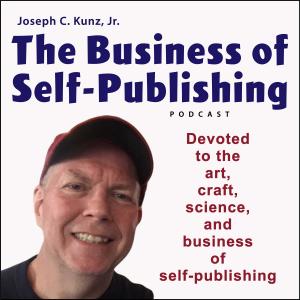The Business of Self-Publishing

10 More Cons of Self-Publishing
Updated April 26, 2023
Subtitle
More Reasons Self-Publishing Might Not Be for You
Synopsis
Here are ten more reasons why self-publishing might not suit you when trying to publish your new book. Ten more negatives you must think about as part of your book publishing adventure.
What You Will Learn
1. You will learn why self-publishing can be arduous and time-consuming.
2. You will learn the significant stumbling blocks you must overcome to become a successful self-publisher.
3. You will learn why self-publishing might not be the right path to explore.
Introduction
Here are ten more reasons why self-publishing might not suit you when trying to publish your new book. Ten more negatives you must think about as part of your book publishing adventure.
But when reading this list, remember there is no right way to publish your book. Therefore, each writer needs to consider their own goals, reasons, and resources before choosing to pursue the traditional book publishing route or the self-publishing route.
Con # 1. You Are Responsible for All Editing
As a self-publisher, you need to become skilled in all editorial and design areas - or hire and pay for an expert to do it. Editing takes a lot of time to learn to do correctly.
Con # 2. You Must Treat Your Self-Publishing as A Business
Managing a business, even a small one, is time-consuming. As the owner, you are responsible for every aspect of the company, such as marketing, finance, public relations, design, writing, website design, etc. The list is endless.
Con # 3. Booksellers Will Not Buy Directly from An Author
Most booksellers will not buy directly from an author. It is too expensive and time-consuming for them to set up an account to handle only one book. That means you must find a distributor who will insist on a considerable discount from the cover price. That means that about 70% of your profits get consumed very quickly.
Con # 4. It Can Be Difficult to Get Reviews
Most reviewers will not review self-published books, especially in the mainstream media.
Con # 5. You Must Get a Lot of Exposure
You will quickly discover that with self-publishing, writing is 5% of the process - marketing is 95% of the process. You might spend twelve months writing your book and then spend the next sixty months putting all your time into marketing that one book.
Marketing your book never ends. Traditional publishers can quickly get your book a considerable amount of media exposure. Going with a conventional publisher puts your book way ahead of self-published books – right from the start.
Con # 6. Self-Publishers Might Not See a Profit for A Long Time
Most traditionally published books see a positive return on their investment. Most self-published books never make a profit. So, if positive cash flow from your book is your primary motivation for entering self-publishing, you might be making a mistake.
Con # 7. There Is a Prejudice against Self-Publishing
This partiality is the general perception of the public and many of those who work in traditional publishing, the media, and every university and college. Many believe that only a conventional publishing company can produce a quality book. If this bothers you, then self-publishing is not for you.
Con # 8. All Marketing And Promotion Is Your Responsibility Alone
The money spent on your book’s marketing will depend on how much your book makes for the publishing company. Much of your book’s marketing will still be your responsibility, but they will provide guidance.
But with self-publishing, you will be entirely on your own. You must spend precious time learning to market and promote your book. Marketing and promotion will become a significant part of your life.
Con # 9. Self-Publishers Have a Smaller Marketing Power and Reach
This weakness is a great reason to use a traditional publisher. They have enormous marketing power and clout and are sophisticated marketing experts.






 Visit Podcast Website
Visit Podcast Website RSS Podcast Feed
RSS Podcast Feed Subscribe
Subscribe
 Add to MyCast
Add to MyCast